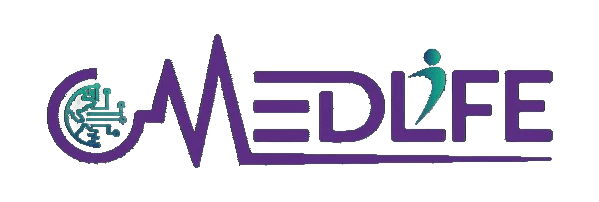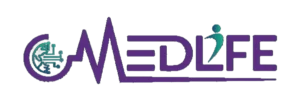In today’s rapidly evolving healthcare landscape, staying ahead requires embracing the latest technologies and innovative practices. Revenue Cycle Management (RCM) plays a crucial role in ensuring that healthcare providers receive timely and accurate payments for their services. Leveraging technology not only streamlines processes but also enhances overall financial performance. This article explores the significance of technology and innovation in RCM, highlighting key advancements that are transforming the industry.
The Importance of Technology in Revenue Cycle Management
Revenue Cycle Management encompasses the entire financial process of a healthcare provider, from patient intake to the final payment of bills. Efficient RCM is essential for maintaining a healthy cash flow, reducing administrative burdens, and ensuring compliance with regulatory standards. Technology serves as the backbone of modern RCM, enabling providers to manage complex billing processes with greater accuracy and efficiency.
Emerging Technologies Shaping Revenue Cycle Management
Several cutting-edge technologies are revolutionizing RCM, each addressing specific challenges and enhancing different aspects of the revenue cycle. Here are some of the most impactful innovations:
Leveraging Artificial Intelligence for Billing Efficiency
Artificial Intelligence (AI) is increasingly being utilized to optimize billing processes. AI algorithms can analyze vast amounts of data to identify patterns, predict claim denials, and suggest corrective actions. By automating routine tasks such as data entry and claim processing, AI reduces the likelihood of human error and accelerates the billing cycle. For instance, AI-powered systems can flag incomplete or incorrect information before claims are submitted, ensuring higher approval rates and faster reimbursements.
Integration of RCM with Electronic Health Records Systems
Integrating RCM with Electronic Health Records (EHR) systems is another significant advancement. This seamless connection allows for the automatic transfer of patient information between clinical and financial departments, minimizing manual data entry and reducing discrepancies. When RCM systems are synchronized with EHRs, providers can ensure that billing codes accurately reflect the services rendered, leading to more precise and efficient billing processes. This integration also enhances patient care by providing a comprehensive view of both medical and financial information.
Blockchain Technology in Healthcare Revenue Cycle Management
Blockchain technology offers a secure and transparent method for managing financial transactions within RCM. By creating an immutable ledger of all transactions, blockchain ensures data integrity and reduces the risk of fraud. Each transaction is verified and recorded in a decentralized manner, making it difficult for unauthorized changes to occur. This level of security is particularly beneficial in healthcare, where sensitive patient information and significant financial transactions are involved. Additionally, blockchain can streamline payment processes by eliminating intermediaries, resulting in faster and more cost-effective transactions.
The Role of Automation in Reducing Billing Errors
Automation plays a pivotal role in minimizing billing errors and enhancing overall efficiency. Automated systems can handle repetitive tasks such as claim submissions, payment postings, and account reconciliations with greater accuracy than manual processes. By standardizing workflows and ensuring consistency, automation reduces the chances of errors that can lead to claim denials and delayed payments. For example, automated validation checks can ensure that all necessary information is included in a claim before it is submitted, decreasing the likelihood of rejections and improving cash flow.

Benefits of Implementing Advanced Technologies
Adopting these advanced technologies offers numerous benefits for healthcare providers:
- Increased Accuracy: Automation and AI reduce the risk of human error, ensuring that billing information is accurate and complete.
- Faster Processing: Streamlined workflows and automated tasks accelerate the billing cycle, leading to quicker reimbursements.
- Cost Savings: By reducing the need for manual labor and minimizing errors, providers can lower administrative costs and improve profitability.
- Enhanced Compliance: Integrated systems and blockchain technology help ensure adherence to regulatory standards, reducing the risk of penalties and fines.
- Improved Patient Satisfaction: Transparent billing practices and efficient payment processes enhance the overall patient experience, fostering trust and loyalty.
Challenges and Solutions
While the benefits of technology in RCM are substantial, implementing these innovations comes with its own set of challenges:
- Initial Investment: Adopting new technologies requires significant upfront investment. However, the long-term savings and efficiency gains often justify the initial costs.
- Training and Adaptation: Staff may need training to effectively use new systems. Providing comprehensive training programs and ongoing support can facilitate a smooth transition.
- Data Security: Protecting sensitive patient information is paramount. Implementing robust security measures and adhering to compliance standards can mitigate data security risks.
- Integration Issues: Integrating new technologies with existing systems can be complex. Partnering with experienced technology providers can help ensure seamless integration and interoperability.
Future Trends in RCM Technology
The future of Revenue Cycle Management is poised to be shaped by continuous technological advancements. Here are some emerging trends to watch:
- Advanced Analytics: Enhanced data analytics will provide deeper insights into financial performance, enabling providers to make more informed decisions.
- Machine Learning: Machine learning algorithms will further refine predictive capabilities, improving the accuracy of revenue forecasts and claim denials.
- Telehealth Integration: As telehealth services expand, integrating these offerings into RCM systems will become increasingly important, ensuring accurate billing and reimbursement for virtual care.
- Robotic Process Automation (RPA): RPA will automate even more complex tasks, further reducing administrative burdens and enhancing efficiency.
Conclusion
Embracing technology and innovation is essential for optimizing Revenue Cycle Management in the healthcare sector. From artificial intelligence and EHR integration to blockchain and automation, these advancements offer significant benefits, including increased accuracy, faster processing, and cost savings. While challenges exist, strategic implementation and ongoing support can help healthcare providers overcome obstacles and fully leverage the potential of these technologies. As the industry continues to evolve, staying at the forefront of technological innovation will be key to maintaining a healthy and efficient revenue cycle.
For healthcare providers seeking to enhance their RCM processes, partnering with a professional medical billing company can provide the expertise and solutions needed to navigate this complex landscape successfully.


